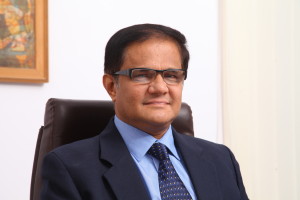 Globalisation has brought in a different perspective in the industrial sector and the advent of multinationals in our country has also created a new climate of industrial culture. According to a 2011 ILO (International Labour Organisation) paper, 83.8 per cent of South Asian women are engaged in so-called vulnerable employment and most of the work that these women are engaged in can be qualified under `casual labour’ piece-work such as the manufacturing of garments and other small items, produced within the restraints of the workers’ household. Informal labour is generally qualified by the absence of decent labour conditions as recommended by the ILO and a lack of any sort of secure and sufficient wages. Women workers present a considerable share of this so-called informal workforce, a share that has in fact risen substantially over the last 20 years. On the other hand, the number of Indian women engaged in formal, secure and recognised labour is still minimal. Only 14-15 per cent of workers in the formal sector are women, their numbers hardly rising over the past years.
Globalisation has brought in a different perspective in the industrial sector and the advent of multinationals in our country has also created a new climate of industrial culture. According to a 2011 ILO (International Labour Organisation) paper, 83.8 per cent of South Asian women are engaged in so-called vulnerable employment and most of the work that these women are engaged in can be qualified under `casual labour’ piece-work such as the manufacturing of garments and other small items, produced within the restraints of the workers’ household. Informal labour is generally qualified by the absence of decent labour conditions as recommended by the ILO and a lack of any sort of secure and sufficient wages. Women workers present a considerable share of this so-called informal workforce, a share that has in fact risen substantially over the last 20 years. On the other hand, the number of Indian women engaged in formal, secure and recognised labour is still minimal. Only 14-15 per cent of workers in the formal sector are women, their numbers hardly rising over the past years.In the above context, in India, the presence of women employed in the manufacturing sector is still a question mark. If we compare India with South-East Asian countries such as Thailand and China, we have failed to build a significant manufacturing sector that can absorb and employ women workforce.The work opportunities that do exist in the formal economy manufacturing sector are in the existing patriarchal framework exploited by men rather than women. India’s largest manufacturing units are still being dominated by men, but however, there has been a mindset change due to the liberalisation and it has been felt that, with regard to productivity , efficiency and precision, women are better than men.
Social security is very important for working women in informal sectors as well as the manufacturing sector, as they face various hazards in their life and at the workplace. It has been observed and several studies indicate that the issues, which still need attention are: 1. Improper compensation; 2. Discomfort and mental stress; 3. Dual responsibilities creating emotional strain; 4. Hazards related to society and family; 5. The physical protection and sexual harassment.
At the national level, the government and other social institutions have launched various social security programmes to meet the minimum needs of poor informal sector workers, which are classified under three heads as mentioned below: i. Centrally funded social assistance programme; ii. Social insurance scheme; iii. Social assistance through welfare funds of central and state governments.
However, the most important aspect is to change the approach and mindset. Any amount of social legislation or enactment is not going to help unless we accept and adapt to the change.
